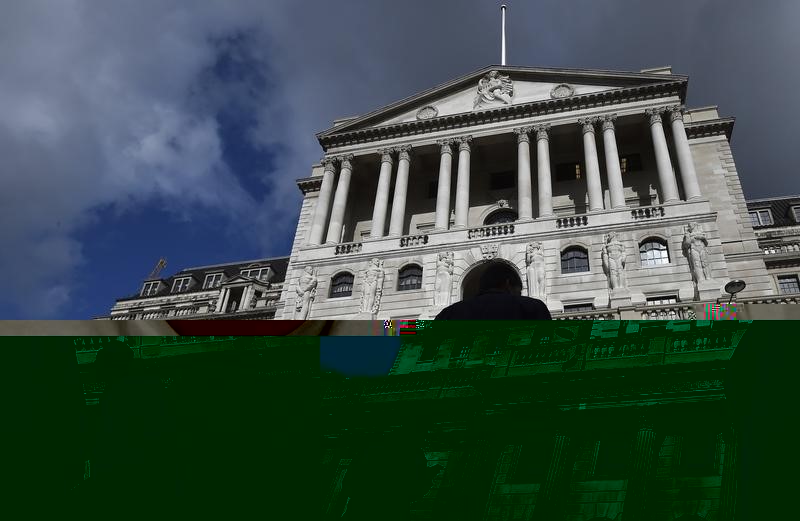By David Milliken
LONDON (Reuters) - The Bank of England may need to provide more stimulus to Britain's economy if growth does not recover as forecast after next month's referendum on European Union membership, BoE policymaker Gertjan Vlieghe said on Thursday.
Vlieghe, speaking at the London Business School, said that growth had slowed since a high point in 2014 and that it was hard to tell how much of the most recent weakness was due purely to firms holding off investment before June 23's vote.
Last week the BoE said that growth could slow and inflation spike if Britain voted to leave the EU, but that there should be a bounceback if it voted to stay in the bloc.
"If such improvement is not apparent soon, this will reduce my confidence that inflation is likely to return to the target within an acceptable time horizon without additional monetary stimulus," Vlieghe said.
The central bank could reach an initial judgment on the impact of the referendum on the economy by the time of its Aug. 4 policy meeting and round of forecasts, Vlieghe said in a question and answer session after the speech.
British annual inflation fell to 0.3 percent last month.
In January Vlieghe said he worried that high debt levels, ageing populations, and growing inequality were slowing long-run growth in Britain and other advanced economies, and that he could back a rate cut if things did not improve.
"The loss of UK growth momentum and absence of a meaningful pick-up in inflationary pressures has been a rather gradual process over the past few years, but, cumulatively, it adds up to a significant downward revision ... to which monetary policy has not responded so far," he said on Thursday.
Last month, Vlieghe said in a newspaper interview that British interest rates could theoretically go slightly below zero if the economic circumstances warranted.
On Thursday he said either rate cuts or more quantitative easing were options, while a higher inflation target or printing so-called 'helicopter money' to hand out to the public were not options the central bank could consider on its own.
While most economists polled by Reuters think the BoE will raise rates early next year, assuming Britain votes to stay in the EU, financial markets do not see a move until 2019, in part because they price in a risk of Britain leaving the EU.
Vlieghe said it was unclear how the BoE would respond to an "Out" vote as it would depend on unpredictable moves in the exchange rate and supply and demand, sticking closely to language used by the central bank in last week's forecasts.
These see quarterly growth slowing to 0.3 percent in the three months to June - about half its normal rate - before recovering to deliver annual economic growth of 2.0 percent for 2016 as a whole and 2.3 percent in 2017.
The bulk of Vlieghe's speech focused on the reason for the low level of long-term interest rates in Britain and abroad.
Thirty-year British government bond yields (GB30YT=RR) stand at around 2.3 percent, not far off a record low of 2.04 percent set early last year, while 10-year gilts (GB10YT=RR) are at 1.44 percent. U.S. and German bonds show a similar pattern.
Vlieghe, who joined the MPC in September, said these levels reflected a market judgment that central banks were likely to keep interest rates low for many years to ensure inflation stayed on target in the face of long-run headwinds to growth.
"Viewed in this light, there is nothing anomalous about the low level of long-term interest rates, nor is there any evidence that government bond yields are 'distorted' by central banks' asset purchases," he said.
But current market expectations of central bank policy could prove wrong depending on how the economy evolved, he added.

The U.S. Federal Reserve, European Central Bank and BoE have all faced criticism from politicians and investors that their trillions of dollars of asset purchases since the 2008 financial crisis hurt savers and artificially boosted asset prices.